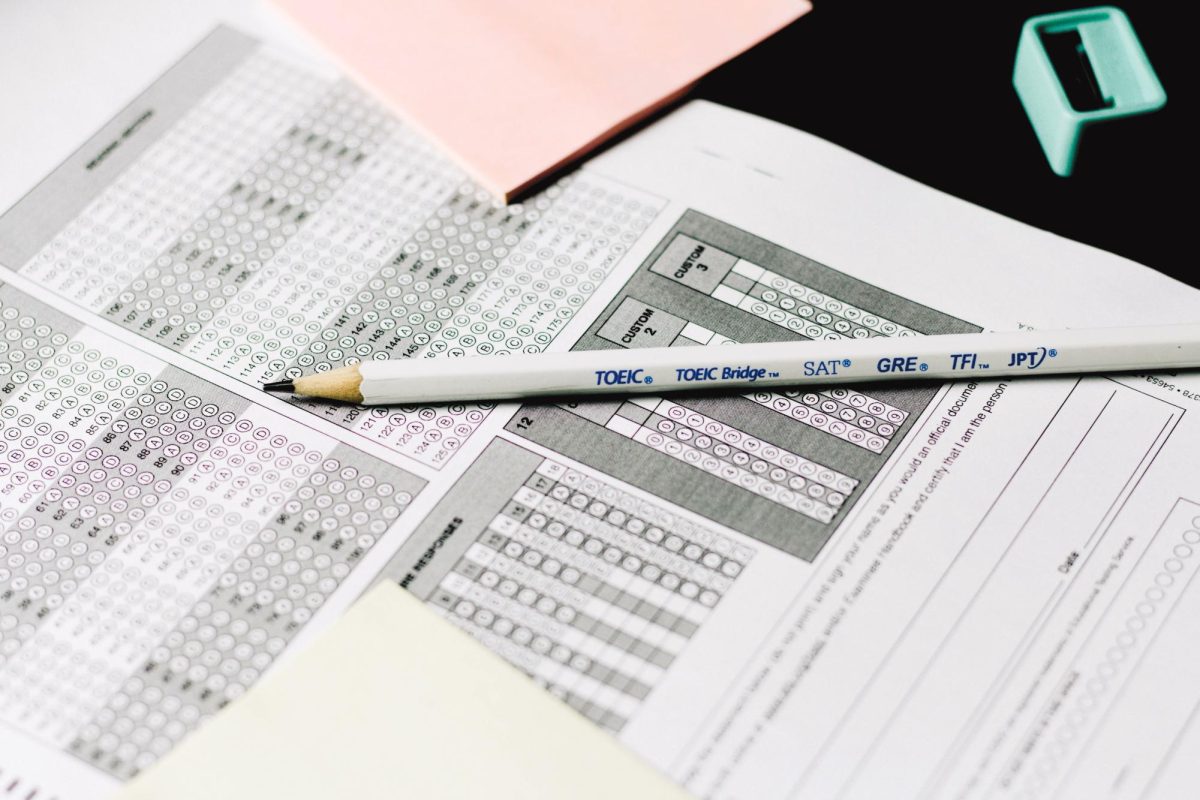Fordham’s Office of Undergraduate Admission will extend its test-optional policy to include prospective students applying for the fall 2025 admission cycle. The decision was motivated by the desire to attract more applicants, increasing diversity among the student body and allowing applicants to highlight other skills and strengths in their application.
The policy’s extension was communicated by John Buckley, vice president for enrollment, in a university-wide communication on Sept. 6. The approach emphasizes that standardized admissions tests, such as the SAT and ACT, are an optional element of the undergraduate admission application process.
According to Patricia Peek, dean of undergraduate admissions, the university initially pursued the test-optional policy at the height of the COVID-19 pandemic in May 2020 alongside a slew of other colleges when standardized testing was unavailable to most students. While this decision was originally implemented for a two-year period, the policy has since been extended twice, once in 2022 and the most recent extension.
“Test submission is only one part of an admission application, it is a factor that needs to be analyzed in the context of other factors associated with the pandemic (such as remote learning, etc.),” she said.
The dean of undergraduate admissions explained that the test-optional policy has allowed the university to further its holistic approach toward evaluating applicants, which considers all factors of a students portfolio as opposed to a one-pronged approach of relying on a single aspect such as test scores or GPA.
“If someone excels in music, they get to showcase that, but on the other side, if someone’s great at school, they can also use those test scores for scholarships,”Akshara Saxena, FCLC ’27
While the admissions office has not engaged students in focus groups on this topic, Peek noted that the general feedback from high school students and college counselors has been positive on the test-optional policy, allowing for greater flexibility and access for students who may have been hesitant to apply because of their test scores.
Current Fordham students also expressed positive views on the policy and their experiences going through the university’s test-optional admissions cycle.
Akshara Saxena, Fordham College at Lincoln Center (FCLC) ’27 and an international student from India, did not submit her test scores during her application process. She considered submitting her test scores at one point, but she ultimately chose not to since she applied as an early decision candidate and was accepted.
Saxena views the policy favorably, sharing that by weighing other application elements such as extracurriculars or hobbies, prospective students are able to showcase themselves. Additionally, she lauded the policy’s encouragement to admit more diverse applicants.
“If someone excels in music, they get to showcase that, but on the other side, if someone’s great at school, they can also use those test scores for scholarships,” Saxena said.
She also praised the diversity of the incoming class of 2027 due to Fordham’s status as a predominantly white institution and attributed this increase in diversity to the test-optional policy.
According to the university’s website, undergraduate admissions during the first year the test-optional policy was implemented saw 63.8% of applicants not submitting standardized test scores. Of that 63.8%, 58% of admitted students were accepted without test scores.
Peek stressed that the admissions office’s holistic process has been in place long before test scores were optional. Even when test scores were required, the focus of the admission review was on four-year high school performance, with standardized testing employed in relation to grades, trends and rigor. To evaluate an applicant’s academic performance and ability, the admissions committee reviews the rigor of their coursework within the context of their high school’s standing and the opportunities which were available to them.
Ashley Silva, FCLC ’25, applied to Fordham in October 2020, under the early action banner, for the class of 2025 application cycle, and also opted to not submit her test scores. She believes the test-optional policy extension is a helpful option for students, especially those who struggle with test-taking.
“I have a lot of anxiety and nerves when it comes to test-taking, it (test-optional policy) really helped me get into this school,” she said. “I feel like if I used my standardized test score I may have not gotten in here.”
Abbigail Rammarine, FCLC ’23, applied in 2019 during the class of 2024 admissions cycle, and chose to submit her SAT scores. If given the choice of whether to submit or omit her test scores, Rammarine said she would’ve still submitted her test scores for scholarship consideration. She championed the policy as a tool to bring a greater diversity of experience to the Fordham community.
“I think it’s great, for those who still want to come to Fordham, bring more diverse perspectives to school, and people can still submit them, there’s still an option,” she said.
“Equity is central to our process and we make a concerted effort to eliminate any factors which would foster inequality,”Patricia Peek, dean of undergraduate admissions
Applicants are not required to submit test scores to be considered for merit scholarships or honors programs. For students who choose to submit their test scores, they will be evaluated within the context of the SAT or ACT middle 50% range metric of the university’s most recent class profile.
Peek explained that to ensure that students who do not submit their test scores are not discriminated against or considered less qualified than students who decide to do so, admissions officers are given extensive training on policies, procedures and standardized application evaluation.
She emphasized the university’s value of the test optional policy in conjunction with its desire to gain additional data to help the office of undergraduate admissions more fully understand the impact of the policy.
“Equity is central to our process and we make a concerted effort to eliminate any factors which would foster inequality,” she said.
The dean of undergraduate admissions does not anticipate that this decision will impact the admissions process for prospective students, as the policy has been in place for several cycles. Peek noted that the policy’s evaluation process has only received minimal refinements for the near future.


